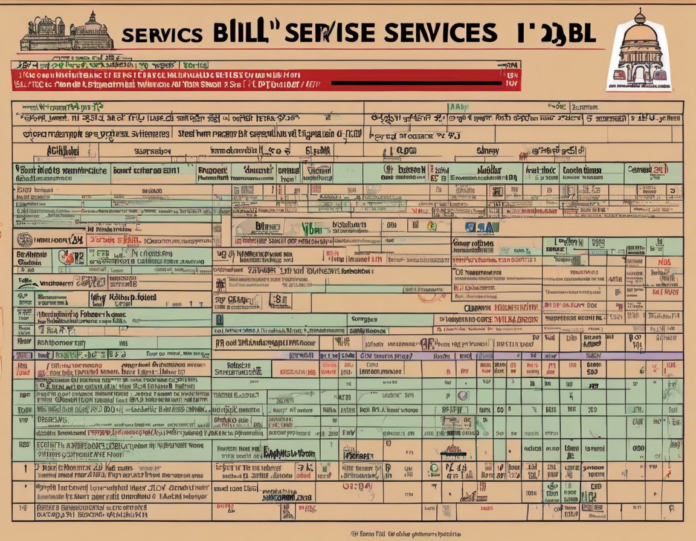The Delhi Services Bill was introduced with the aim of regulating the service sector in the capital city of India. This bill has various implications on businesses, both positive and negative. In this article, we will explore the impact of the Delhi Services Bill on businesses, highlighting key aspects that business owners need to be aware of to navigate through the changes effectively.
Scope of the Delhi Services Bill
The Delhi Services Bill seeks to bring transparency and accountability to the service sector in Delhi. It applies to a wide range of services, including but not limited to hospitality, healthcare, transportation, and professional services. By regulating these sectors, the bill aims to protect consumers and ensure quality service delivery.
Key Provisions of the Delhi Services Bill
-
Registration Requirements: Businesses providing services in Delhi are required to register with the appropriate regulatory authority to operate legally.
-
Quality Standards: The bill sets out quality standards that businesses must adhere to in order to maintain their operations.
-
Consumer Protection: The bill includes provisions to protect consumers from unfair practices and ensure timely resolution of complaints.
Impact on Businesses
Positive Impact
-
Enhanced Credibility: By complying with the regulations set out in the bill, businesses can enhance their credibility and build trust among consumers.
-
Level Playing Field: The bill creates a level playing field for businesses operating in the service sector, preventing unfair competition practices.
-
Improved Service Quality: Businesses are incentivized to improve the quality of their services to meet the standards set by the bill, ultimately benefiting consumers.
Negative Impact
-
Compliance Costs: Businesses may incur additional costs to comply with the registration and quality standards outlined in the bill.
-
Operational Changes: Some businesses may need to make operational changes to meet the requirements of the bill, which could impact efficiency and productivity.
-
Increased Regulatory Oversight: Businesses will be subject to increased regulatory oversight, requiring them to allocate resources for compliance monitoring.
Strategies for Businesses to Adapt
To navigate through the changes brought about by the Delhi Services Bill, businesses can adopt the following strategies:
1. Understand the Requirements
Business owners should thoroughly understand the registration and quality standards set out in the bill to ensure compliance.
2. Invest in Training and Development
Businesses can invest in training programs to upskill their employees and meet the quality standards stipulated in the bill.
3. Review and Update Processes
Regularly reviewing and updating operational processes can help businesses align with the regulatory requirements of the bill.
4. Seek Legal Counsel
Seeking legal counsel can help business owners navigate the legal implications of the bill and ensure compliance with the regulatory framework.
Frequently Asked Questions (FAQs)
1. Who is required to register under the Delhi Services Bill?
Businesses providing services in Delhi, including hospitality, healthcare, transportation, and professional services, are required to register under the Delhi Services Bill.
2. What are the penalties for non-compliance with the Delhi Services Bill?
Non-compliance with the Delhi Services Bill can result in fines, suspension of operations, or other enforcement actions by the regulatory authorities.
3. How can businesses ensure compliance with the quality standards set by the bill?
Businesses can ensure compliance with the quality standards by implementing quality control measures, training employees, and regularly monitoring service delivery.
4. Are there any exemptions for small businesses under the Delhi Services Bill?
Small businesses may be eligible for certain exemptions or concessions under the Delhi Services Bill, depending on the nature of their operations and annual turnover.
5. How can businesses file complaints against other businesses under the Delhi Services Bill?
Businesses can file complaints against other businesses for violations of the Delhi Services Bill by contacting the relevant regulatory authority and providing detailed information about the alleged violation.
6. What are the benefits of the Delhi Services Bill for consumers?
The Delhi Services Bill aims to protect consumers from substandard services, improve service quality, and provide mechanisms for timely redressal of grievances, ultimately enhancing consumer satisfaction and trust.
7. How often do businesses need to renew their registration under the Delhi Services Bill?
Businesses are typically required to renew their registration under the Delhi Services Bill annually or as per the specific renewal requirements outlined in the legislation.
8. Can businesses challenge the regulatory decisions under the Delhi Services Bill?
Businesses have the right to challenge regulatory decisions under the Delhi Services Bill through appropriate legal channels, such as filing appeals or seeking judicial review.
9. What support is available for businesses to understand and comply with the Delhi Services Bill?
Government agencies, industry associations, and legal professionals can provide support and guidance to businesses seeking to understand and comply with the provisions of the Delhi Services Bill.
10. How can businesses stay updated on any amendments or changes to the Delhi Services Bill?
Businesses can stay updated on amendments or changes to the Delhi Services Bill by regularly monitoring official government announcements, seeking guidance from legal experts, and engaging with industry forums for updates and insights.
In conclusion, the Delhi Services Bill has significant implications for businesses operating in the service sector in Delhi. By understanding the scope, provisions, and impact of the bill, businesses can proactively adapt to the regulatory changes, enhance their operations, and continue to provide high-quality services to consumers in compliance with the law.












